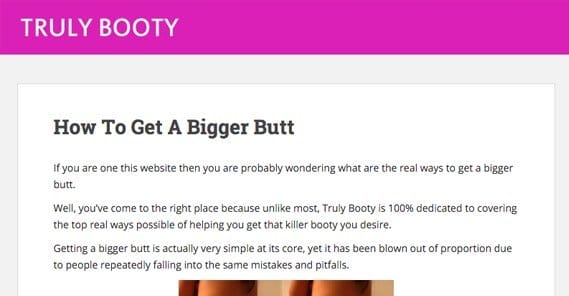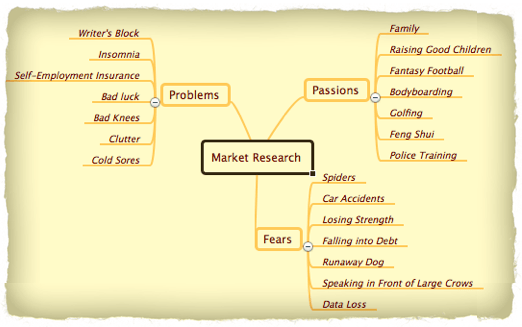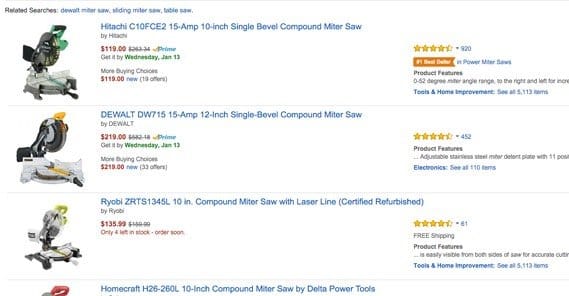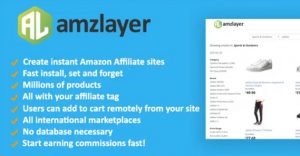The Ultimate Guide to Finding the Perfect Niche Business
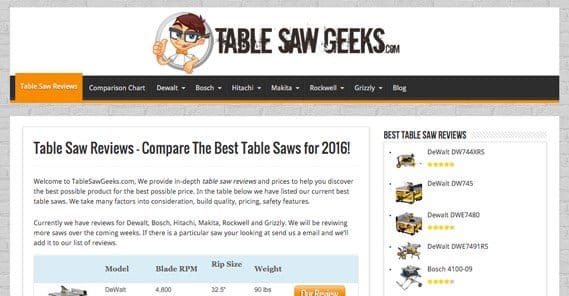
There are two schools of thought when it comes to picking a niche for a business. They are, unfortunately, diametrically opposed. You have to pick one to move forward, though, so what are they?
The first is the “follow your passion” route. Everyone has something in their life that they love, be it a hobby, a sport, a craft, or something else. This is the logical conclusion to the statement that “every hobby should pay for itself.” When you love what you do, you never work a day in your life. Or, you know, so the saying goes.
The problem with this method is that often times the thing you love isn’t something you can really monetize. How many thousands of Etsy sellers run shops that don’t turn a profit? How many people invest in craft supplies but never produce enough to sell? How many writers are perpetually stuck in “working on my novel” mode? Once you do produce something, can you possibly sell it for enough to cover your costs and your time, or is it just a way to recoup some of your losses?
Worse, many of the things the average person is passionate about are things that already have businesses dedicated to them. If you’re a young adult passionate about video games but unable to break into the developer role, you’ll probably look at game journalism. That’s fine, but then you’re competing with the likes of Kotaku, IGN, GameSpot, VG247, and a whole host of other, lesser sites. It’s really difficult to find a place where you can gain any attention at all from that position.
That’s why the other method is the method I prefer, and it’s the method I’m going to teach you. You don’t bring your passion and try to monetize it; you find a lucrative niche and build up passion. Mark Cuban, one of the most successful entrepreneurs in the world, even says it. “Follow your passion is easily the worst advice you could ever give or get.”
Different marketers and entrepreneurs have different advice, but the best one I’ve seen comes from Brian Dean at Backlinko. He promotes chasing a lucrative niche even if you’re not passionate about it, because it’s easier to learn the basics, the marketing, and the skills necessary to succeed when you’re not struggling for pennies. Once you have the foundation, then you can build a site around your passion, without making newbie mistakes.
Why do you need passion? It comes through in how you run your business, how you write for your blog, and how you carry yourself throughout the industry. You may not actually be passionate enough to take a loss in your business, but you’re certainly passionate enough to come across as such for your fans. People are a lot more willing to buy something from someone they feel has passion than they are from someone who is just trying to make a buck. Even if all you’re trying to do is make your own profit, having that passion to back you will help you out.
What is a Niche?
A niche is a specific sub-section of a market, which itself is a sub-section of an industry. Let’s continue with the gaming analogy, shall we? The industry as a whole is gaming, but gaming is very, very broad. You have video games, you have tabletop games, you have board games, you have casino games and card games, and more.
Drill down within the broad gaming category and you have video games, and within that category you have different types of games. You have PC games and console games and mobile games. Within those categories, you have genres, like racing games or adventure games or RPGs. Then within, say, racing games, you have different types of those. Realistic racing games, F1 games, open world racing games, off-road racing, and on and on. You even have oddballs like the Twisted Metal series with vehicular arena combat, or Rocket League with competitive car-based soccer.
A niche, then, would be something like “off-road dirt bike racing games.” It’s narrow, but it’s still broad enough to have appeal to a wide selection of users who are into that kind of game.
You can do the same thing with any industry. Weight loss is a huge billion-dollar industry, but a specific niche like “weight loss for people with vasculitis” is a very narrow niche.
Why do you need to choose a niche? At the end of the day, it’s the key to getting a target audience to pay attention to you. If you’re just trying to focus on something as broad as weight loss, you end up being just one more out of thousands of sites, competing with giants. Who are you next to Dr. Oz? If you’re focusing on a narrow niche like the vasculitis example, you may be the only person out there marketing to people with that condition. As such, they feel that you are aware of and are familiar with their unique situation, and have products and solutions that work specifically for them.
You can drill down inside any industry to find a specific niche. Right now, the viability of that niche isn’t important. What’s important is brainstorming ideas. You could start with pets and drill down to dogs, dog costumes, pajamas for dogs. You can start with travel, and drill down to travel for people on a tight budget backpacking in Europe.
If you go too deep, your audience gets too small to support a business. There are very few people who want to backpack in Europe without wearing shoes, who are also under 25 years old and who are named Steve.
On the other hand, if you’re too broad, you have too much competition and too little specific appeal. You’re not going to be able to make the next Amazon, but maybe you can build up to that point through enough hard work.
So what makes a niche good? It has to fit one of two categories.
- It’s a niche that covers a problem that people dealing with it consider serious. It could be diet or weight, it could be money management, it could be computer or car repairs, it could even be something as nebulous as “dealing with depression.” Your role would be providing support, products, and advice to help cope with or solve the problem.
- It’s a niche that covers a topic that the people involved are passionate about. This is something they enjoy or get pleasure from doing. This covers things like collecting items, crafting, playing sports, “extreme” anything, and travel. Your role is to provide support, products, and advice to help people get as much bang for their buck out of it as they can, to maximize their pleasure.
You have to decide, then, whether your niche is solving a problem or providing pleasure. This will help you determine how lucrative the niche can be, and how you can monetize it. It will guide the tone of your content as well.
Finding Your Niche
A lot of people have the impression that marketing is impossible to get into today, because it’s been filled up to capacity. They feel like you need to find a specific niche that no one has found before, and capitalize on it before anyone else does. And, granted, if you do manage to somehow find a niche no one has found before, you can be on the forefront of discovery. It would be like being one of the first businesses to set up shop in the wild west.
The thing is, until a new frontier opens up, there is no wild west. People are right to consider the internet packed to capacity, but they’re wrong to think that means there’s no room for them. There are no new niches, only niches you haven’t found a way to exploit.
Step 1: Brainstorm Niche Ideas
There are a lot of ways you can go about this. You’re not drilling down to specific niches yet; that comes later. For now, get ideas.
- Examine your life and look for two things; passions and problems. What are you passionate about? List hobbies and interests. What problems do you struggle with, in health, finances, love, or another need? List down issues and problems.
- Spend a day and look at the people around you, and society at large, to look for problems or passions. Watch the news and note down problems people encounter. These can be as broad as “hunger in Africa” or as narrow as “that building downtown that’s a blight on the property values.”
- Take a look at trends in technology, in business, or in any other market and look for gaps, holes, or problems people encounter. Think of ways those problems could be solved.
- Harvest niche data from existing marketers. For example, you can go to Amazon and explore the sub-sub-sub-categories of their categories. You can go to an affiliate network like Clickbank and explore their existing offers. Follow the money and explore ideas.
- Search Google/Amazon/Barnes and Noble for ebooks that have lists of niches. There are plenty of people who made “finding a niche” their niche and who will be happy to provide you with a list for a small fee.
At the end of this process you should have anywhere from 50 to 1,000 niche ideas, if not more. Some ebooks can include thousands on their own. That’s fine! You’re at the “harvest bulk data” step. The next step is to narrow down the list of niches into profitable ideas.
Before we begin, eliminate anything from the list that you absolutely know you don’t want to get into. For example, even if there’s a lot of money in it, I have absolutely no interest in marketing online casinos, so any niche relevant to that topic is eliminated.
Step 2: Verifying Monetary Potential
Every niche needs a few things to be viable. It needs the existence of something – a product, a service, a book, or what have you – that can be sold to capitalize on the niche. It also needs enough people interested in the niche to be able to make a profit from it. You could have all the products in the world, but with no one to buy them, you can’t make a business from it. Conversely, you can have a huge interested audience, but if you have no product, you need to develop it yourself. You can do that, but many marketers don’t have the resources to invest in R&D, so they avoid those kinds of niches. If you can do development or not is up to you.
- Use Google’s keyword planner tool to put in some general niche-related keywords and look up their search volume. You’re not looking for keywords with low competition or anything advanced; all you need is keywords that have sufficient search volume to support a niche business. Generally, the threshold will be around 10K minimum for the best keywords, and 50K for related keyword, monthly. More is better for potential earnings, but worse for competition.
- Check sites like Amazon, eBay, Etsy, and affiliate networks like CJ Affiliate, Offer Vault and Clickbank. Look for the availability of products or offers relevant to your niche. Most of the time you’ll be making money through affiliate networking, and you can use these offers as the way you make your money. Look for high value relevant affiliate offers or well-reviewed products.
- Look for existing competition. Competition is good! You can use competition as a baseline for what you want to become and surpass, as well as for ideas for content, products, marketing strategies, and more.
- Look for existing social presence. If your niche has some active communities, hashtags, or business pages, it means your audience is there and likes to connect, which is an opportunity for you. It also means you can see what problems they have in great, close detail, and you can use that to your advantage.
Doing this for dozens or hundreds of niches can be intensely time consuming and tedious, so it’s generally a good idea to look for your most promising niches first. If you find something that disqualifies a niche, don’t go digging for justification! You might be able to make it work, or you might not, and you don’t want to waste too much time trying.
Step 3: Determining Your Role
Now that you have a few niches that you know have traffic, have interest, and have products, you need to figure out where you fit in the grand scheme of things. What can you do, and how can you do it differently or better than the existing marketers in the niche? Here are some ideas.
- Can you produce better or more content? If the existing top-tier competitors are only publishing 1-2 500-word blog posts per week, you can easily out-do and undercut them by producing more, better content. Even if they have a decent amount of lengthy content, you can strive to do it better. Make videos, make infographics, make podcasts, make ultimate guides, make ebooks.
- Can you pick a complimentary sub-niche that doesn’t directly compete with the existing brands, and in fact can form a mutually beneficial relationship with them? This is a great way both to get a kickstart from a company that already has an established position, and to perhaps be bought out by them later.
- Are the competition getting by on a baseline minimum amount of marketing? You can potentially simply out-market them by knowing how to split-test ads, knowing how to optimize ad targeting, and being willing to overrun them with an advertising blitz.
At this point, you get into specific testing and marketing techniques. For example, if you want, you can build a quick test blow. Set up a handful of articles, a few affiliate links, and a landing page. Then spend $50 or so on paid advertising to various platforms, most likely AdWords and Facebook ads. Monitor the traffic coming in and see how it goes.
Ideally, by the end of this process, you will have spent a minimum of investment, but you will have a great idea of what niches are available to you and how you can monetize them. All that’s left is to develop a site, a business, and a plan for marketing. That’s the easy part, right?
 ContentPowered.com
ContentPowered.com
